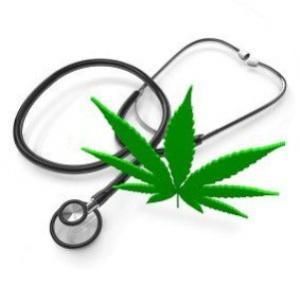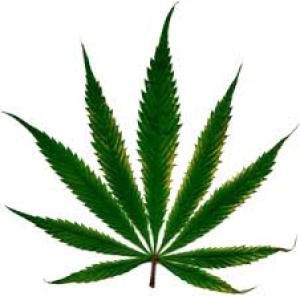In this time of crisis, drug policy reform isn't on hold, it's just adapting.
In which we review two recent journalist efforts to understand the world of drug prohibition and drug culture.
Another year, another new federal drug budget. It looks pretty similar to those that preceded it.
Baltimore and Philadelphia stop drug arrests in a bid to reduce the spread of the coronavirus, SAMSHA eases opioid maintenance treatment rules for the same reason, and more.
States grapple with marijuana sales during a time of crisis, Ghana legalizes hemp and CBD, Mexican traffickers facing chemical shortages are raising prices, and more.
Utah sees its first dispensary open, a Florida bill to cap THC at 10% hits a snag, and more.
A US CBP officer gets nailed with cocaine, an American Samoan jail guard gets nailed smuggling meth into the jail, and more.
The DEA proposes allowing mobile methadone treatment programs, US prosecutors say the Honduran president took bribes from drug traffickers, Major League Baseball loosens up on marijuana use by players, and more.
Boston's first pot shop is set to open Monday, the UN Commission on Narcotic Drugs again postpones a vote on classifying marijuana, and more.
Colombian cocaine production is way up, the US says as it pushes for forced and aerial eradication, NJ pot legalization supporters organize for victory, WVA is moving to increase meth sentences, and more.
The New Jersey Supreme Court strikes a blow for medical marijuana patients' employment rights, South Dakota's governor and legislature reach a deal to legalize hemp, and more.
An Ohio marijuana legalization initiative hits a roadblock, an Arizona marijuana legalization initiative sees the field clear, and more.
The Pine Ridge Reservation votes to legalize weed, a pair of veterans' medical marijuana bills move in the House, signature gathering for the Oregon Psychedelic Service Act initiative is looking good, and more.
Dear Reformer:

David Borden
In this time of crisis, all of us are figuring out how to adapt our lives, take care of our needs, and do our jobs. Everything is affected, and drug policy is not an exception.
Our nation the past several decades has engaged in massive numbers of arrests for what in many cases are low-level violations. Despite some notable bipartisan movement to reform criminal justice, our prisons and jails remain packed with over two million people. With a pandemic in progress, this is a public health crisis in the making, one that will affect the incarcerated, staff of the institutions holding them, their families, ultimately to many more people outside the walls to whom the COVID-19 virus ultimately spreads.
For drug users, and for the health programs that serve them, there are special challenges too. Every person struggling with a substance use disorder, every syringe exchange program or methadone/burprenorphine clinic, every medical marijuana patient, wants to not transmit the invisible threat to themselves or others while going about their day. People in recovery or trying to get there, are stuck at home with less access to support.
Congress has yet to provide funding or specify health requirements to be followed by federal or state penal institutions. A bipartisan group of US senators have called for vulnerable prisoners to be moved to home detention. But the Department of Justice and its Bureau of Prisons have substantially undermined early release programs for elderly prisoners, and at least report had not responded to a Congressional request for information on what steps they are taking to safeguard prisoners from disease. Local advocates are worried that stay-at-home orders, justified for the emergency, could lead to increased enforcement against low-level offenses. This is a time to not arrest where possible, not to do more.
A number of jurisdictions have taken good steps. Philadelphia is ceasing certain types of arrests, instead briefly detaining people and taking information but then releasing them. Baltimore's State Attorney is dismissing charges for a range of low-level offenses, including for drugs. Los Angeles and the State of Ohio have released hundreds of people already in detention. Oregon has temporarily allowed marijuana delivery services to leave product outside. Articles following in this issue of the Chronicle discuss those cases. Much more is needed from the nation's cities, counties and states, and from the federal government.
We support the recommendations of the Justice Roundtable, a criminal justice reform coalition based here in Washington, in which we participate. Their COVID-19 section links to much more in the way of news and resources. On the health side, Vital Strategies has published a round-up of resources on COVID-19 and drug risk reduction.
We will be publishing a larger report on these topics. In the meanwhile, I hope those of you who use social media will help by posting some calls on Congress in an alert distributed by the roundtable. You can download the alert, with sample social media posts and accompanying graphics, here. In the sample posts you should fill in the link for your member of Congress you can find their social media addresses by going to House.gov and Senate.gov, looking up your Representative and your two Senators (US voters) and going to their web sites.
Lastly, don't have doubt that all the different parts of drug policy that we're working on, will continue to be worked on and will continue to move forward. At the right times and in ways adapted to the situation, we and our allies will be making the large and small asks of policymakers. Legislative staffers in criminal justice, health and foreign policy will continue to work on their portfolio of issues. And whether the pandemic last for a longer or shorter time, at some point the public and the media will devote space again to all the other issues that affect our society. This is what I've seen happen during past crises, and it will happen again this time, in the ways that work this time.
Thank you for reading and for being here, and more soon.
Sincerely,

David Borden, Executive Director
StoptheDrugWar.org
Washington, DC
https://stopthedrugwar.org
back to top
America shows signs of emerging from the century-long shadow of drug prohibition, with marijuana leading the way and a psychedelic decriminalization movement rapidly gaining steam. It also seems as if the mass incarceration fever driven by the war on drugs has finally broken, although tens if not hundreds of thousands remain behind bars on drug charges.
As Americans, we are remarkably parochial. We are, we still like to tell ourselves, "the world's only superpower," and we can go about our affairs without overly concerning ourselves about what's going on beyond our borders. But what America does, what America wants and what America demands has impacts far beyond our borders, and the American prohibitionist impulse is no different.
Thanks largely (but not entirely) to a century of American diplomatic pressure, the entire planet has been subsumed by our prohibitionist impulse. A series of United Nations conventions, the legal backbone of global drug prohibition, pushed by the US, have put the whole world on lockdown.
We here in the drug war homeland remain largely oblivious to the consequences of our drug policies overseas, whether it's murderous drug cartels in Mexico, murderous cops in the Philippines, barbarous forced drug treatment regimes in Russia and Southeast Asia, exemplary executions in China, or corrupted cops and politicians everywhere. But now, a couple of non-American journalists working independently have produced a pair of volumes that focus on the global drug war like a US Customs X-ray peering deep inside a cargo container. Taken together, the results are illuminating, and the light they shed reveals some very disturbing facts.

Loewenstein, an Australian who previously authored Disaster Capitalism and Profits of Doom, is -- duh -- a critic of capitalism who situates the global drug war within an American project of neo-imperial subjugation globally and control over minority populations domestically. His work is solid investigative reporting, leavened with the passion he feels for his subject.
In Pills, Powder, and Smoke, he visits places that rarely make the news but are deeply and negatively impacted by the US-led war on drugs, such as Honduras. Loewenstein opens that chapter with the murder of environmental activist Berta Caceres, which was not directly related to the drug war, but which illustrates the thuggish nature of the Honduran regime -- a regime that emerged after a 2009 coup overthrew the leftist president, a coup justified by then-Secretary of State Hillary Clinton, and which has received millions in US anti-drug assistance, mainly in the form of weapons and military equipment.
Honduras doesn't produce any drugs; it's only an accident of geography and the American war on drugs that we even mention the country in the context of global drug prohibition. Back in the 1980s, the administration of Bush the Elder cracked down on cocaine smuggling in the Caribbean, and as traffickers sought to evade that threat, Honduras was perfectly placed to act as a trampoline for cocaine shipments taking an alternative route through Mexico, which incidentally fueled the rise of today's deadly and uber-wealthy Mexican drug cartels.
The drug trade, combined with grinding poverty, huge income inequalities, and few opportunities, has helped turn Honduras into one of the deadliest places on earth, where the police and military kill with impunity, and so do the country's teeming criminal gangs. Loewenstein walks those mean streets -- except for a few neighborhoods even his local fixers deem too dangerous -- talking to activists, human rights workers, the family members of victims, community members, and local journalists to paint a chilling picture. (This is why Hondurans make up a large proportion of those human caravans streaming north to the US border. But unlike Venezuela, where mass flight in the face of violence and economic collapse is routinely condemned as a failure of socialism, you rarely hear any commentators calling the Honduran exodus a failure of capitalism.)
He reexamines one of the DEA's most deadly recent incidents, where four poor, innocent Hondurans were killed by Honduran troops working under DEA supervision in a raid whose parameters were covered up for years by the agency. Loewenstein engaged in extended communication with the DEA agent in charge, as well as with survivors and family members of those killed. Those people report they have never received an apology, not to mention compensation, from the Honduran military -- or from the United States. While the Honduran military fights the drug war with US dollars, Loewenstein shows it and other organs of the Honduran government are also deeply implicated in managing the drug traffic. And news headlines bring his story up to date: Just this month, the current, rightist president of Honduras, Juan Orlando Hernández, of meeting with and taking a bribe from a drug trafficker. This comes after his brother, former Honduran Senator Juan Antonio Hernández, was convicted of running tons of cocaine into the United States in a trial that laid bare the bribery, corruption, and complicity of high-level Hondurans in the drug trade, including the president.
Loewenstein also takes us to Guinea-Bissau, a West African country where 70 percent of the population subsists on less than $2 a day and whose biggest export is cashews. Or at least it was cashews. Since the early years of this century, the country has emerged as a leading destination for South American cocaine, which is then re-exported to the insatiable European market.
Plagued by decades of military coups and political instability, the country has never developed, and an Atlantic shoreline suited for mass tourism now serves mainly as a convenient destination for boatloads and planeloads of cocaine. Loewenstein visits hotels whose only clients are drug traffickers and remote fishing villages where the trade is an open secret and a source of jobs. He talks with security officials who frankly admit they have almost no resources to combat the trade, and he traces the route onward to Europe, sometimes carried by Islamic militants.
He also tells the tale of one exemplary drug bust carried out by a DEA SWAT team arguably in Guinean territorial waters that snapped up the country's former Navy minister. The DEA said he was involved in a "narco-terrorist" plot to handle cocaine shipments for Colombia's leftist FARC guerillas, who were designated as "terrorists" by the administration of Bush the Junior in a politically convenient melding of the wars on drugs and terror.
It turns out, though, there were no coke loads, and there was no FARC; there was only a DEA sting operation, with the conspiracy created out of whole cloth. While the case made for some nice headlines and showed the US hard at work fighting drugs, it had no demonstrable impact on the use of West Africa as a cocaine conduit, and it raised serious questions about the degree to which the US can impose its drug war anywhere it chooses.
Loewenstein also writes about Australia, England, and the United States, in each case setting the historical and political context, talking to all kinds of people, and laying bare the hideous cruelties of drug policies that exert their most terrible tolls on the poor and racial minorities. But he also sees glimmers of hope in things such as the movement toward marijuana legalization here and the spread of harm reduction measures in England and Australia.
He gets one niggling thing wrong, though, in his chapter on the US. He converses with Washington, DC, pot activists Alan Amsterdam and Adam Eidinger, the main movers behind DC's successful legalization initiative, but in his reporting on it, he repeatedly refers to DC as a state and once even mistakenly cites a legal marijuana sales figure from Washington state. (There are no legal sales in DC.) Yes, this is a tiny matter, but c'mon, Loewenstein is Australian, and he should know a political entity similar to Canberra, the Australian Capital Territory.
That quibble aside, Loewenstein has made a hardheaded but openhearted contribution to our understanding of the multifaceted malevolence of the never-ending war on drugs. And I didn't even mention his chapter on the Philippines. It's in there, it's as gruesome as you might expect, and it's very chilling reading.
Vorobyov, on the other hand, was born in Russia and emigrated to England as a child. He reached adulthood as a recreational drug user and seller -- until he was arrested on the London Underground and got a two-year sentence for carrying enough Ecstasy to merit a charge of possession with intent to distribute. After that interval, which he says inspired him to write his book, he got his university degree and moved back to Russia, where he picked up a gig at Russia Today before turning his talents to Dopeworld.
Dopeworld is not staid journalism. Instead, it is a twitchy mish-mash, jumping from topic to topic and continent to continent with the flip of a page, tracing the history of alcohol prohibition in the US at one turn, chatting up Japanese drug gangsters at the next, and getting hammered by ayahuasca in yet another. Vorobyov himself describes Dopeworld as "true crime, gonzo, social, historical memoir meets fucked up travel book."
Indeed. He relates his college-boy drug-dealing career with considerable panache. He parties with nihilistic middle-class young people and an opium-smoking cop in Tehran, he cops $7 grams of cocaine in Colombia and tours Pablo Escobar's house with the dead kingpin's brother as a tour guide, he has dinner with Joaquin "El Chapo" Guzman's family in Mexico's Sinaloa state and pronounces them nice people ("really chill"), and he meets up with a vigilante killer in Manila.
Vorobyov openly says the unsayable when it comes to writing about the drug war and drug prohibition: Drugs can be fun! While Loewenstein is pretty much all about the victims, Vorobyov inhabits the global drug culture. You know: Dopeworld. Loewenstein would bemoan the utter futility of a record-breaking seizure of a 12-ton load of cocaine; Vorobyov laments, "that's 12 tons of cocaine that will never be snorted."
Vorobyov is entertaining and sometimes laugh-out-loud funny, and he brings a former dope dealer's perspective to bear. He's brash and breezy, but like Loewenstein, he's done his homework as well as his journalistic fieldwork, and the result is fascinating. To begin to understand what the war on drugs has done to people and countries around the planet, this pair of books makes an essential introduction. And two gripping reads.
Dopeworld: Adventures in the Global Drug Trade by Niko Vorobyov (August 2020, St. Martin's Press, hardcover, 432 pp., $29.99)
Pills, Powder, and Smoke: Inside the Bloody War on Drugs by Antony Loewenstein (November 2019, Scribe, paperback, 368 pp., $19.00)
back to top
The Trump administration rolled out its proposed Fiscal Year (FY) 2021 National Drug Control Budget Tuesday, and it's pretty much more of the same -- $35.7 billion more, to be precise. That's a proposed $94 million increase over what was actually allocated in the current fiscal year.

cocaine seized by US Customs at the Mexican border (dhs.gov)
To be fair, only about half of that money would be destined for the fruitless and endless battle to enforce drug prohibition. The request includes $18.6 billion for prevention and treatment efforts and $17.1 billion for "domestic law enforcement, interdiction, and international drug control efforts," the drug war side of the federal drug budget.
"The FY 2021 budget request sends a strong message that, although we've seen signs of real progress, the Trump administration will not let up in our efforts to save American lives," Office of National Drug Control Policy (ONDCP) Director Jim Carroll said in a statement accompanying the budget release. "Whether it is going after drug traffickers, getting people struggling with addiction the help they need, or stopping drug misuse before it starts, this budget request ensures our partners will have the resources needed to create safer and healthier communities across the nation."
But big talk notwithstanding, there's not really much of a bump for much-needed treatment. The budget would provide more than $14 billion to the Department of Health and Human Services for drug treatment funding, a 3% increase for the department and a 2.9% increase for treatment funding across the federal government. That includes $3.9 billion in drug treatment funding for the DEA for something outside its purview and for which it has not been previously funded.
There's another $2.135 billion for prevention, which we tend to think of mainly as educational efforts, but which the administration notes includes coercive and punitive "drug-free workplace programs" and "drug testing in various settings, including athletic activities, schools, and the workplace."
Ironically given ONDCP's role in rolling out the drug budget, the budget once again takes aim directly at ONDCP. Since the Bush administration, there have been efforts to eliminate or sideline ONDCP, and the Trump administration is back at it. This budget, if enacted, would slash the drug czar's office funding from the $261 million allocated this year to a measly $4.3 million next year, a whopping 98.4% reduction. Congress has so far always rejected such moves. The major part of that reduction results from the transfer of control over High Intensity Drug Trafficking Area (HIDTA) funds from ONDCP to the DEA.
And speaking of the DEA and the prohibition enforcement fraction of the overall drug budget, DEA would see its budget increase to $3.1 billion, an increase of 15.8% over this year. More than half of that increase, though, comes from the transfer of those HIDTA funds from ONDCP.
Overall, domestic drug law enforcement spending would increase to $9.95 billion dollars, a jump of 0.9% over this year. That would include $3.4 billion to pay for housing federal drug war prisoners, $931 million for the US Marshals Service to catch more drug war fugitives, and more than half a billion dollars for the Organized Crime Drug Enforcement Task Force program, among other line items.
There's also $3.4 billion for the Department of Homeland Security's Customs and Border Protection to "protect America's land, sea, and air borders from drug trafficking-related security threats." At the same time, though, the budget would reduce the Defense Department's drug interdiction activities -- think Coast Guard ships loaded with seized cocaine -- from $225 million to $109 million, a reduction of more than half.
But there's also international drug enforcement spending, and the Pentagon would get another $200 million for interdiction and counterdrug activities. That would be a dramatic 43% reduction from the $354 million appropriated this year.
The Justice Department, though, would see a 31% increase in its overseas spending, to just over half a billion dollars. The vast bulk of that funding -- $499.7 million -- would be destined for DEA overseas activities.
But the department with the biggest chunk of foreign drug war funding is State, which would see its Bureau of International Narcotics and Law Enforcement ("drugs and thugs") funded at $441 million, up 15% over this year. That includes things like trying to suppress the Afghan opium crop or the Colombian coca crop, tasks which have proven remarkably futile.
This is the Trump administration's drug war wish list. It is only a budget proposal and is unlikely to remain unchanged, and with keeping ONDCP active a long-running congressional priority, the radical reduction in its funding is one item that's likely to be amended. Still, the Congress has for years passed largely similar drug budgets, and this one will probably pass, too, without many substantial changes.
back to top
Baltimore and Philadelphia stop drug arrests in a bid to reduce the spread of the coronavirus, SAMSHA eases opioid maintenance treatment rules for the same reason, and more.

The coronavirus pandemic is having an impact on drug policy issues. (Creative Commons)
Connecticut Poll Has Strong Support for Marijuana Legalization. A new poll from the Hartford Courant and Sacred Heart University has 63.4% of state residents in favor of ending marijuana prohibition. The poll comes as lawmakers push to advance a legalization bill backed by Gov. Ned Lamont (D). The poll found that 34.4% "strongly support" legalization, while 29.9% "somewhat support" it.
Iowa Poll Has First Time Majority Support for Marijuana Legalization. A new Des Moines Register/Mediacom Iowa poll has 53% support for marijuana legalization, the first time the Iowa Poll has registered majority support for the move. As recently as 2013, only 29% supported legalization.
New York Governor Says Marijuana Legalization Still on the Agenda. Gov. Andrew Cuomo (D) said Monday that marijuana legalization remained a priority despite the coronavirus crisis. Asked about his legislative priorities during a briefing on the crisis, Cuomo said "I want to do legalizing marijuana," adding that he also wants to achieve a controversial bail reform measure through the budget.
Medical Marijuana
Alabama Senate Approves Medical Marijuana Bill. The state Senate last week approved a medical marijuana bill, Senate Bill 165. The measure would allow people with a doctor's recommendation to use medical marijuana for 15 conditions - including cancer, anxiety and chronic pain. It also would let them purchase cannabis products at one of 34 licensed dispensaries. It now goes to the House.
Hemp
Idaho House Kills Hemp Legalization Bill. Lawmakers in the House State Affairs Committee voted 8-7 to kill Senate Bill 1345, which would have legalized industrial hemp production in the state. Although the bill had passed the Senate, it ran into opposition from anti-cannabis activists and law enforcement, who warned that it could lead to a "hemp-marijuana culture" in the state.
Drug Policy
CDC Reports 4% Decline in Opioid, Heroin Overdose Deaths. The Centers for Disease Control and Prevention (CDC) has reported that overall overdose death rates nationwide dropped 4.1% from 2017 to 2018. Deaths from heroin use dropped by 4%, while prescription opioid deaths dropped by 13.5%. "Decreases in overdose deaths involving prescription opioids and heroin reflect the effectiveness of public health efforts to protect Americans and their families," Dr. Robert R. Redfield, director of the CDC, said in a press release. "While we continue work to improve those outcomes, we are also addressing the increase in overdose deaths involving synthetic opioids. We must bring this epidemic to an end," Redfield said. Synthetic opioid deaths were actually up 10%.
Baltimore to End Most Drug Prosecutions Amid Coronavirus Outbreak. In a bid to prevent the spread of coronavirus, Baltimore State's Attorney Marilyn Mosby (D) is moving to dismiss pending charges against most people accused of drug offenses. According to her guidance to staff, things like drug possession, attempted drug distribution, prostitution, traffic offenses and public urination are among the offenses that shouldn't land people being bars at this point. "This policy is in place for now as an attempt to save lives," Mosby said. "We will assess the policy at a later date and time when this global pandemic is over."
Philadelphia Police Halt Drug Arrests During Coronavirus Outbreak. Philadelphia Police Commissioner Danielle Outlaw last week ordered the department to begin delaying arrests for low-level offenses, including drug offenses. Crimes including theft, burglary, prostitution, stolen automobiles, vandalism, and certain economic crimes will no longer automatically result in detention. Instead, officers will temporarily detain suspects to identify them, then release them with an arrest warrant issued at some later date.
Drug Treatment
SAMHSA Eases Opioid Treatment Rules in Response to Coronavirus. The Substance Abuse and Mental Health Services Administration (SAMHSA) has announced policy changes easing the rules for home treatment of opioid use disorder as a response to the coronavirus crisis. The agency issued a directive allowing some patients in opioid treatment programs to take home a 28-day supply of medications such as methadone and buprenorphine. For less stable patients, SAMSHA is authorizing a 14-day take-home supply.
International
Paraguay Issues First Medical Marijuana Licenses. Late last month, the government issued its first medical marijuana licenses. Twelve pharmaceutical companies received licenses to import seeds for the domestic cultivation and sale of medical marijuana, which will be provided free to eligible patients.
back to top
States grapple with marijuana sales during a time of crisis, Ghana legalizes hemp and CBD, Mexican traffickers facing chemical shortages are raising prices, and more.
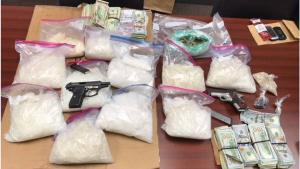
Meth and fentanyl from Mexico are about to get more expensive thanks to the coronavirus crisis. (Warner Robbins, GA, PD)
Massachusetts Governor Shutters Recreational Pot Shops, Lets Medical Marijuana Outlets Remain Open. Gov. Charlie Baker (R) has ordered recreational marijuana outlets to close during the coronavirus crisis but has spared medical marijuana dispensaries. The emergency order issued Monday closed all non-essential businesses in the state for at least two weeks. Dispensaries are considered essential; recreational pot shops are not.
Ohio Marijuana Legalization Initiative Rejected for Lack of Signatures. State Attorney General Dave Yost on Monday announced he has rejected a petition for a proposed constitutional amendment to legalize marijuana because petitioners did not submit the minimum number of valid signatures required. This was a first step; organizers needed to submit summary language of their amendment along with at least 1,000 valid voter signatures. They didn't do that. "Of the 1,000 minimum signatures required to proceed with the constitutional amendment, those boards of elections reported receiving a total of only 271 valid signatures," Yost said. "Finally, because the petition failed to meet the signature threshold, I have not made any determination concerning the fairness and truthfulness of the proposed summary."
Oregon Regulators Approve Curbside Recreational Marijuana Sales. The Oregon Liquor Control Commission, which also regulates marijuana, has approved a temporary rule allowing recreational marijuana retailers to sell their products curbside. The rule permits retailers to take orders and deliver marijuana to a customer who is outside and within 150 feet of the licensed premises. The sales can take place only during normal business hours, no earlier than 7:00am and no later than 10:00pm.
Medical Marijuana
Pennsylvania Regulators Ease Medical Marijuana Rules Because of Coronavirus. State regulators trying to ensure that patients continue to have access to medical marijuana have removed a cap on the number of patients caregivers can serve and eliminated background checks for caregiver renewal applications. Curbside pickup has also been okayed, as have remote consultations for some practitioners.
International
Ghana Legalizes Hemp, CBD. The parliament has passed a bill legalizing the production of industrial hemp and its use for medicinal as well as commercial purposes. The bill also expands access to drug treatment and medical care and marks a shift from treating addiction as a legal issue to a public health issue.
Mexican Meth, Fentanyl Traffickers Raise Prices Amid Shortages of Precursor Chemicals. With supplies of Chinese precursor chemicals running low because of disruptions related to the coronavirus pandemic, Mexican drug traffickers are raising wholesale illicit drug prices. The Sinaloa Cartel is reportedly increasing the wholesale price of a pound of meth from $100 to $600. The price of fentanyl is also going up, although not yet as dramatically. Wholesale prices for a pound have reportedly increased from $35,000 to $42,000.
back to top
Utah sees its first dispensary open, a Florida bill to cap THC at 10% hits a snag, and more.
Florida
Florida Measure Would Cap THC at 10% for Underage Patients. House Speaker Jose Oliva (R-Hialeah) last Friday filed an amendment to a Senate Appropriations Committee bill that would cap the THC level of medical marijuana at 10% for underage patients. Last month, Oliva said that capping medical marijuana at 10% was one of his priorities. The amendment to Senate Bill 230, which limits the cap to kids, is most likely a concession to veterans' groups that made it clear last week they opposed any caps.
Florida Bill to Cap THC Levels Hits Snag. An amendment to an appropriations bill that seeks to limit medical marijuana to no more than 10% THC for patients under 21 has hit a snag in the Senate. Senate Health Policy Chairwoman Gayle Harrell, (R-Stuart) introduced the proposal Monday and tried to add it to a Department of Health appropriations bill but has now removed it after facing questions from members of the Senate Rules Committee.
Hawaii
Hawaii Bill to Protect Patients' Employment Rights Advances. A bill that would protect medical marijuana cardholders from being fired or not hired because they tested positive for marijuana is advancing in the legislature. Instead of a drug test, cardholders could undergo a "fit-for-duty" test that measure impairment, not metabolites. The bill excludes law enforcement and prison guards, other public safety workers, and health care workers who administer drugs to patients. The state Senate Commerce, Consumer Protection and Health Committee and the state Senate Judiciary Committee approved the bill Friday with some amendments. It now heads for a Senate floor vote.
Utah
Utah Governor Signs Medical Marijuana Amendments Bill. Gov. Gary Herbert (R) last Friday signed into law Senate Bill 121, just days before the state's medical marijuana program opened Monday. The changes in the bill include packaging, expungements, dosing, and limits on how many patient recommendations doctors can provide. "This bill makes needed adjustments and clarifications to Utah's medical cannabis law," Herbert said. "These changes will help us ensure that Utah patients have the best possible access to cannabis products as our new program rolls out on Monday, March 2."
Utah Sees First Dispensary Open. The Beehive State's first medical marijuana dispensary opened in Salt Lake City Monday. Dragonfly Wellness on State Street beat everyone else to the punch. Thirteen other dispensaries are expected to open across the state this year.
back to top
A US CBP officer gets nailed with cocaine, an American Samoan jail guard gets nailed smuggling meth into the jail, and more. Let's get to it:
In Atlanta,
a US Customs and Border Protection officer was arrested Tuesday after getting caught smuggling three bricks of cocaine in his luggage as he landed in Atlanta on a flight from the US Virgin Islands. The as yet unnamed officer was allowed to bypass airport security because of his job status, but drug sniffing dogs found the coke. He faces multiple charges, including possession of cocaine with intent to distribute and possessing a firearm in furtherance of drug trafficking.
In Pago Pago, American Samoa, an American Samoan correctional officer was arrested Wednesday for allegedly helping to smuggle illegal drugs and cell phones into the territory's only jail. Officer Ofisa Enoka Leifi Jr. is charged with unlawful possession of methamphetamine with intent to distribute, unlawful possession of methamphetamine, and concealing an offense.
In Brownsville, Texas, a Cameron County corrections officer was arrested last Thursday for allegedly smuggling marijuana into the County Jail. Officer Ivan Montoya went down after jail guards smelling burning marijuana and he was then snitched out by an inmate as "the officer who had brought in the marijuana." Local media did not report the precise charges.
back to top
The DEA proposes allowing mobile methadone treatment programs, US prosecutors say the Honduran president took bribes from drug traffickers, Major League Baseball loosens up on marijuana use by players, and more.

Major League Baseball is loosening up on players' marijuana use. (Scott Slade/Creative Commons)
Major League Baseball to Allow Players' Marijuana Use. Major League Baseball has liberalized its stance on marijuana use by players. Under a memo released last month, players can now consume marijuana without risk of discipline, although they can't come to work under the influence and they can't enter into commercial agreements with marijuana companies. The league removed marijuana from its list of controlled substances last year.
Asset Forfeiture
Georgia Bill Would End Civil Asset Forfeiture. A bipartisan group of lawmakers have filed House Bill 1086, which would end civil asset forfeiture in the state. It has been sent to the House Judiciary Committee. The bill amends state law to require that criminal proceedings be concluded before any civil forfeiture proceedings could take place, unless the property owner or interest holder waives the right to wait for criminal proceedings to conclude. The bill would also prohibit civil forfeiture proceedings from moving forward in the event of a dismissal or acquittal of criminal charges. Current law allows civil forfeiture proceedings even if a person is acquitting of a crime or charges are dismissed.
Drug Treatment
DEA Proposes Allowing Mobile Methadone Programs. The DEA has filed a notice in the Federal Register that it is considering a proposed rule that would "revise the existing regulations for narcotic treatment programs (NTPs) to allow a mobile component associated with the registered program to be considered a coincident activity. The NTP registrants that operate or wish to operate mobile components (in the state that the registrant is registered in) to dispense narcotic drugs in schedules II-V at a remote location for the purpose of maintenance or detoxification treatment would not be required to obtain a separate registration for a mobile component. This proposed rule would waive the requirement of a separate registration at each principal place of business or professional practice where controlled substances are dispensed for those NTPs with mobile components that fully comply with the requirements of the proposed rule, once finalized. These revisions to the regulations are intended to make maintenance or detoxification treatments more widely available, while ensuring that safeguards are in place to reduce the likelihood of diversion." There are still 53 days to comment on the rule, which can be done at the link above.
Harm Reduction
Arizona House OKs Bill Legalizing Needle Exchange Programs. The House on Wednesday approved House Bill 2608, which would legalize needle exchange programs in the state as part of an effort to reduce disease and overdoses among illicit drug users. The bill now heads to the Senate.
International
Honduran President Took Bribe from Drug Traffickers, US Prosecutors Charge. Honduran President Juan Orlando Sanchez agreed to shield a drug trafficker from prosecution and offered to let him use the country’s armed forces for security in exchange for a $25,000 bribe, prosecutors in Manhattan federal court alleged Tuesday. The drug kingpin, Daniel Fuentes Ramirez, was arrested in Miami on weapons and cocaine conspiracy charges. Last fall, President Sanchez's brother, a former Honduran senator, was convicted in New York on cocaine conspiracy charges.
back to top
Boston's first pot shop is set to open Monday, the UN Commission on Narcotic Drugs again postpones a vote on classifying marijuana, and more.

Viva Mexico! (Creative Commons)
California Court Rules Smell of Marijuana in Vehicle by Itself Not Grounds for Search. A California appellate panel has ruled that now that marijuana is legal, the smell of marijuana in a car stopped for other reasons isn't enough to justify a full-blown search of the vehicle. "Marijuana and alcohol now receive similar treatment under the law," said the Appellate Division of Alameda County Superior Court in a ruling barring evidence of a loaded handgun that police found during the search in question. The ruling was issued in December and was published by the state courts this week as a precedent for future cases.
Boston's First Pot Shop Set to Open Monday. Three and a half years after voters approved marijuana legalization, Boston is about to get its first marijuana retail outlet. Pure Oasis will open Monday in Dorchester. It is the first shop to be approved by the state's Cannabis Control Commission.
Drug Policy
Oregon Drug Decriminalization Measure Rapidly Gathers Signatures for November Ballot. A campaign to put a drug treatment and drug decriminalization initiative, the "Drug Treatment and Recovery Act" ( IP 44), on the November ballot has already collected 125,000 raw signatures, the Drug Policy Alliance, which is financing the campaign, announced Thursday. The measure needs 112,000 valid voter signatures to qualify for the ballot. It has until May to turn in more signatures.
International
UN Commission on Narcotic Drugs Once Again Postpones Key Marijuana Vote. The United Nations Commission on Narcotic Drugs (CND) has decided to delay until December a vote due to take place this week on the potential global rescheduling of cannabis. The CND, whose meeting in Vienna ended today, was due to vote on a set of recommendations from the World Health Organization (WHO) to loosen restrictions on marijuana and related substances like CBD and THC. This is the second time the CND has refused to vote on the recommendations, which the WHO first presented in January 2019.
Mexico Marijuana Legalization Bill Advances. Three Senate committees on Thursday approved a draft legalization bill, bringing it one step closer to passage. Ajoint meeting of the Justice, Health and Legislative Studies committees approved the bill "in general," meaning that individual articles within it remain open for debate and amendment. The bill would legalize the possession of up to an ounce of marijuana and allow medical marijuana patients to grow their own. It would also establish a legal market for marijuana that would see 40% of production licenses go to people in communities affected by drug trafficking. Bill specifics will be debated by those same committees and then in a plenary session of the Senate, which could see a final vote as soon as next week. The measure would then go to the Chamber of Deputies. The Supreme Court has issued an April 30 deadline to end marijuana prohibition.
The Drug Policy Alliance is a funder of StoptheDrugWar.org.
back to top
Colombian cocaine production is way up, the US says as it pushes for forced and aerial eradication, NJ pot legalization supporters organize for victory, WVA is moving to increase meth sentences, and more.

Cocaine production in Colombia is at record levels, the US says. (Pixabay)
New Jersey Legalization Supporters form Coalition to Push for November Victory. Advocates and stakeholders in the state's marijuana industry have formed a campaign coalition, NJ CAN 2020, to fight for marijuana legalization that includes a racial and social justice approach. The group includes members of New Jersey United for Marijuana Reform, including the ACLU of New Jersey, Doctors for Cannabis Regulation, the Latino Action Network, the American Trade Association for Cannabis and Hemp, Law Enforcement Action Partnership, the NAACP New Jersey State Conference and the NJ CannaBusiness Association.
Oklahoma Sees Another Legalization Initiative Filed. Stakeholders in the state's medical marijuana industry have filed a legalization initiative, SQ 811, in response to an earlier filed legalization initiative that they say would not fully protect the state's existing medical marijuana industry. The initiative would tax marijuana at 25% but says medical marijuana would be "exempt from all taxes." The same group also filed a decriminalization initiative, SQ 812, the same day.
Virginia Legislature Approves Decriminalization Bill. The state Senate on Sunday approved a decriminalization bill, SB 2. The bill has already passed the House, so it now heads to the desk of Gov. Ralph Northam (D). Under the bill, possession of up to an ounce will now merit a fine of no more than $50.
Sentencing
West Virginia Legislature Approves Bill Raising Meth Sentences. The state Senate on Sunday approved HB 4852, which would double mandatory minimum and maximum sentences for possession with intent to manufacture or deliver methamphetamine. What is currently a one-to-five-year sentence would become a two-to-10-year sentence. The bill has already passed the House but has to go back for a concurrence vote to approve changes made in the Senate.
Foreign Policy
United States and Colombian Officials Set Bilateral Agenda to Reduce Cocaine Supply. Last Friday, the White House Office of National Drug Control Policy (ONDCP) and the United States Department of State’s Bureau of International Narcotics and Law Enforcement Affairs (INL) led a counternarcotics dialogue with the Government of Colombia to set forth a bilateral, whole-of-government joint action plan to reduce the high levels of coca cultivation and cocaine production by 50 percent by the end of 2023.The dialogue focused on increasing coca eradication and cocaine interdiction, improving security and economic opportunities in the rural areas most afflicted by narcotics trafficking, and targeting narcotics-related money laundering and illicit finances. A focus of the discussion was expanding the results of Colombia’s integrated coca eradication program by ensuring full use of all available tools, including manual eradication, alternative development, and a Colombian-led aerial eradication component, supported by rural development and rural security programs.
International
Canadian Drug Decriminalization Bill Filed. Toronto Liberal MP Nathaniel Erskine-Smith has recently tabled a drug decriminalization bill, C-235, which would remove simple drug possession from the Controlled Drugs and Substances Act. "The international evidence is pretty clear that the way we have dealt with drug use, the war on drugs and throwing police resources to reduce drug use, has failed and has undermined public-health efforts," Erskine-Smith said. "And the overwhelming evidence today is that we should treat drug use as a health issue and we should be removing barriers to seeking treatment, and decriminalization of simple possession would do just that." Private bills rarely pass, but this is a start.
Colombia Cocaine Production Hit Record High Last Year Despite Forced Eradication, US Says. Cocaine production increased 8% last year, reaching an all-time high, according to figures released by the US government. The increase came even as the US and Colombian governments have been promoting forced eradication of coca crops and refusing to support crop substitution and rural development programs that are broadly considered more effective.
back to top
The New Jersey Supreme Court strikes a blow for medical marijuana patients' employment rights, South Dakota's governor and legislature reach a deal to legalize hemp, and more.
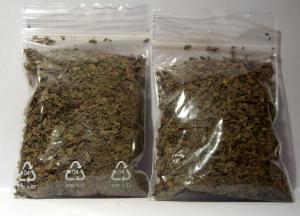
Mississippi lawmakers couldn't agree on whether to ban or regulate kratom, so they did nothing. (Creative Commons)
Mississippi House Passes Medical Marijuana Measure as Alternative to Initiative Already on November Ballot. In a bid to head-off a medical marijuana initiative that has already qualified for the November ballot, the House on Monday approved HCR 39 as an alternative for voters. It's the brainchild of Rep. Trey Lamar (R), who claimed people who signed initiative petitions were duped and accused the initiative campaign of "taking advantage" of the state law allowing for citizen-sponsored initiatives. The measure now heads for the Senate.
New Jersey Supreme Court Rules Workers Can't Be Fired for Failing Drug Test Because of Medical Marijuana. The state Supreme Court ruled Tuesday that barring coming to work stoned, medical marijuana patients remain protected by the state's anti-discrimination and cannot be fired for testing positive for marijuana. The high court ruling came just days after an appellate court reached the same conclusion. "This protects hundreds, if not thousands of employees" who’ve faced the "stigma of marijuana," said Jamison Mark, a lawyer for the plaintiff.
Hemp
South Dakota Lawmakers, Governor Reach Deal on Hemp Bill. Gov. Kristi Noem (R) has reached an agreement with lawmakers that should result in the quick passage of a bill legalizing hemp production in the state. Noem had been demanding $3.5 million to ensure the program started "responsibly," and now lawmakers have agreed to do that. The House has already passed a bill, and now the Senate has gutted and passed its version of a hemp bill, so the agreement can be ratified in conference committee.
Kratom
Mississippi Legislature Decides to Do Nothing About Kratom. Kratom will remain legal and unregulated in the state after legislators killed bills to regulate it and bills to prohibit it. The bills died Tuesday when committees did not consider them before the first big deadline of the legislative session.
back to top
An Ohio marijuana legalization initiative hits a roadblock, an Arizona marijuana legalization initiative sees the field clear, and more.
Marijuana PolicyArizona Legalization Initiative Bid Fails, Clears Way for Smart and Safe Legalization Initiative. And then there was one. The Arizona Cannabis Chamber of Commerce has given up on plans for a legalization initiative and is instead endorsing a rival initiative, the Smart and Safe Arizona Act. The Smart and Safe Arizona Act campaign has already gathered more than 270,000 raw signatures, almost guaranteeing that it will qualify for the ballot. It needs 237,000 valid voter signatures by July 2. It has also raised $1.6 million.
Ohio Attorney General Rejects Language of Legalization Initiative. Attorney General Dave Yost (R) has rejected the language for a proposed constitutional amendment to legalize marijuana. Yost said the proposed language makes unsupported statements and fails to note the amendment would be written into the constitution. Backers can make changes and resubmit it, but the clock is ticking. They only have until July to get it approved and gather 440,000 valid signatures.
Medical Marijuana
Missouri Senate Passes Ban on Medical Marijuana-Infused Candies. The Senate has passed that would ban marijuana-infused candy for medical use in what supporters said was a bid to prevent children from accidentally eating marijuana. The measure would ban candy such as lollipops, cotton candy and fruit and animal-shaped edibles that could appeal to children. The bill now goes to the House.
back to top
The Pine Ridge Reservation votes to legalize weed, a pair of veterans' medical marijauna bills move in the House, signature gathering for the Oregon Psychedelic Service Act initiative is looking good, and more.
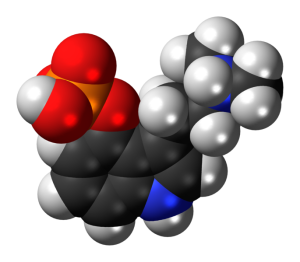
Psilocybin molecule. An Oregon initiative would allow for its therapeutic use. (Creative Commons)
Oglala Sioux Tribe Approves Medical, Recreational Marijuana. Oglala Sioux Tribe members on the Pine Ridge Reservation in South Dakota voted Wednesday to legalize medical and recreational marijuana. Both passed by wide margins, with 82% approving medical marijuana and 74% approving recreational marijuana. A proposal to legalize alcohol sales failed with only 44% of the vote. The tribe is now set to be the only one in the nation to legalize marijuana in a state where it otherwise remains illegal.
Medical Marijuana
Congressional Committee Approves Marijuana Bills for Military Veterans. The House Veterans' Affairs Committee has approved two bills focused on marijuana and military veterans. The committee voted 15-11 to approve the Veterans Equal Access Act (HR 1647), sponsored by Rep. Earl Blumenauer (D-OR), which would allow doctors at the U.S. Department of Veterans Affairs (VA) to recommend medical marijuana to their patients in states where it’s legal. The committee also approved the VA Medical Cannabis Research Act (HR 712), sponsored by Rep. Lou Correa (D-CA), which would require VA to conduct clinical trials on the medical potential of cannabis in the treatment of conditions that commonly afflict veterans. It was approved in a voice vote.
Iowa House Approves Medical Marijuana Expansion Bill. The House on Wednesday passed a bill that adds more qualifying conditions, allow more doctors to recommend patients for the program, and raise limits on THC content. The bill now heads to the Senate. Although Gov. Kim Reynolds (R) vetoed a similar bill last year, she said she is comfortable with this bill.
Tennessee Senate Committee Advances Medical Marijuana Bill, But Poison Pill Added. A medical marijuana bill, SB 2334, was approved by the Senate Health and Welfare Committee, but only after a poison pill amendment that would only allow the bill to take effect if marijuana is rescheduled as a Schedule II substance under federal law. A similar bill is moving in the House.
Drug Testing
Pennsylvania Mom Sues Hospital over Drug Test That Led to Child Abuse Probe. A mother who gave birth in the University of Pittsburgh Medical Center hospital has now filed a suit against the facility charging that it collected and tested her urine for drugs without her consent while she was in labor and reported a false positive result to protective services that resulted in a child abuse investigation. This is the second such lawsuit filed against the hospital since 2014.
Psychedelics
Oregon Psilocybin Initiative Already Has 100,000 Raw Signatures. Campaigners for IR 34, the Oregon Psilocybin Service Act, say they already have 100,000 raw signatures. They need 112,000 valid voter signatures by July to qualify for the November ballot. The initiative would allow adults to visit licensed facilities to have the drug administered under the supervision of medical professionals.
back to top







